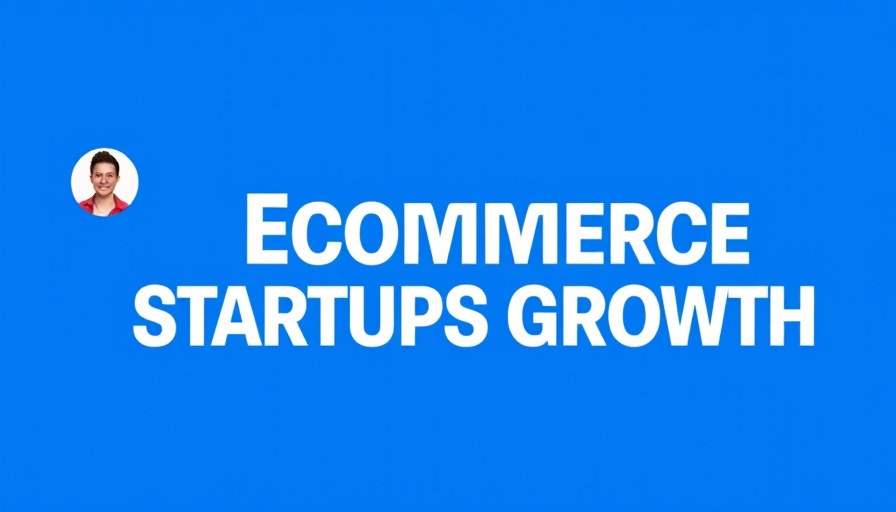
The Rise of Ecommerce Startups: An Overview
The ecommerce landscape is in constant flux, with new startups emerging rapidly, thanks to advancements in technology and changes in consumer behavior. According to a recent analysis involving over 150,000 websites, substantial growth in organic search traffic is often indicative of a startup's market viability. For aspiring entrepreneurs and investors alike, understanding which companies are leading in this space can offer invaluable insights.
Top Ecommerce Startups by Growth
In the first quarter of 2025, the top five ecommerce startups with the most significant increases in organic traffic set an inspiring benchmark. Leading the pack is Thatch, an online marketplace facilitating personalized travel itineraries, with an astounding 3,891% growth in organic traffic over twelve months. This staggering increase reflects a thriving interest in curated travel experiences, particularly as global travel rebounds post-pandemic.
Following Thatch is Elmut, a pet food subscription service that has generated a 2,446% increase. Utilizing human-grade ingredients and tailoring meals to pet needs, Elmut is capturing a growing market interested in pet welfare—a trend that correlates with increased pet ownership during and after lockdowns.
Insights from Funding and Market Trends
The funding obtained by these startups also reflects investor confidence in their business models. For instance, Wrogn, the third highest in growth, has raised $62.8 million, indicating strong investor support for contemporary apparel in the diverse Indian market. Similarly, Virgio, which focuses on sustainable fashion, aligns with ongoing global conversations about environmental consciousness, accounting for its impressive 2,335% growth.
Consumer Interest in New Experiences
What makes these startups particularly interesting is their focus on unique customer experiences. While traditional ecommerce often relies on competitive pricing, these companies thrive by integrating personal branding and tailored experiences into their business models. For instance, Bezel, specializing in luxury watches, is capitalizing on the market’s increasing demand for authentic luxury goods. As young consumers progressively seek brands that resonate with their lifestyle choices, these startups are positioned to attract a dedicated customer base.
Future Trends to Watch
Looking ahead, savvy investors and entrepreneurs should monitor how these companies leverage their current growth trajectories into sustainable practices as market conditions evolve. Additionally, innovations in user experience and consumer engagement tactics will likely play pivotal roles in determining future successes.
As we move through 2025, expect to see how these trends unfold and influence the entire ecommerce sector. The ongoing evolution of shopping habits, particularly in post-pandemic scenarios, will shape not just these startups but also larger corporations adapting to stay competitive.
Key Takeaways for Entrepreneurs and Investors
Understanding emerging ecommerce trends can provide substantial advantages for entrepreneurs and investors alike. The performance of startups like Thatch and Elmut demonstrates the need for innovative thinking and adaptability in today’s market. Keeping abreast of these changes empowers stakeholders to make informed decisions that align with current consumer interests.
In conclusion, the growth of ecommerce startups points toward a dynamic future, intertwined with consumer engagement and innovative business strategies. For those looking to invest or start their own company, analyzing these trends can be the key to unlocking new opportunities in the ecommerce realm.
 Add Row
Add Row  Add
Add 






Write A Comment